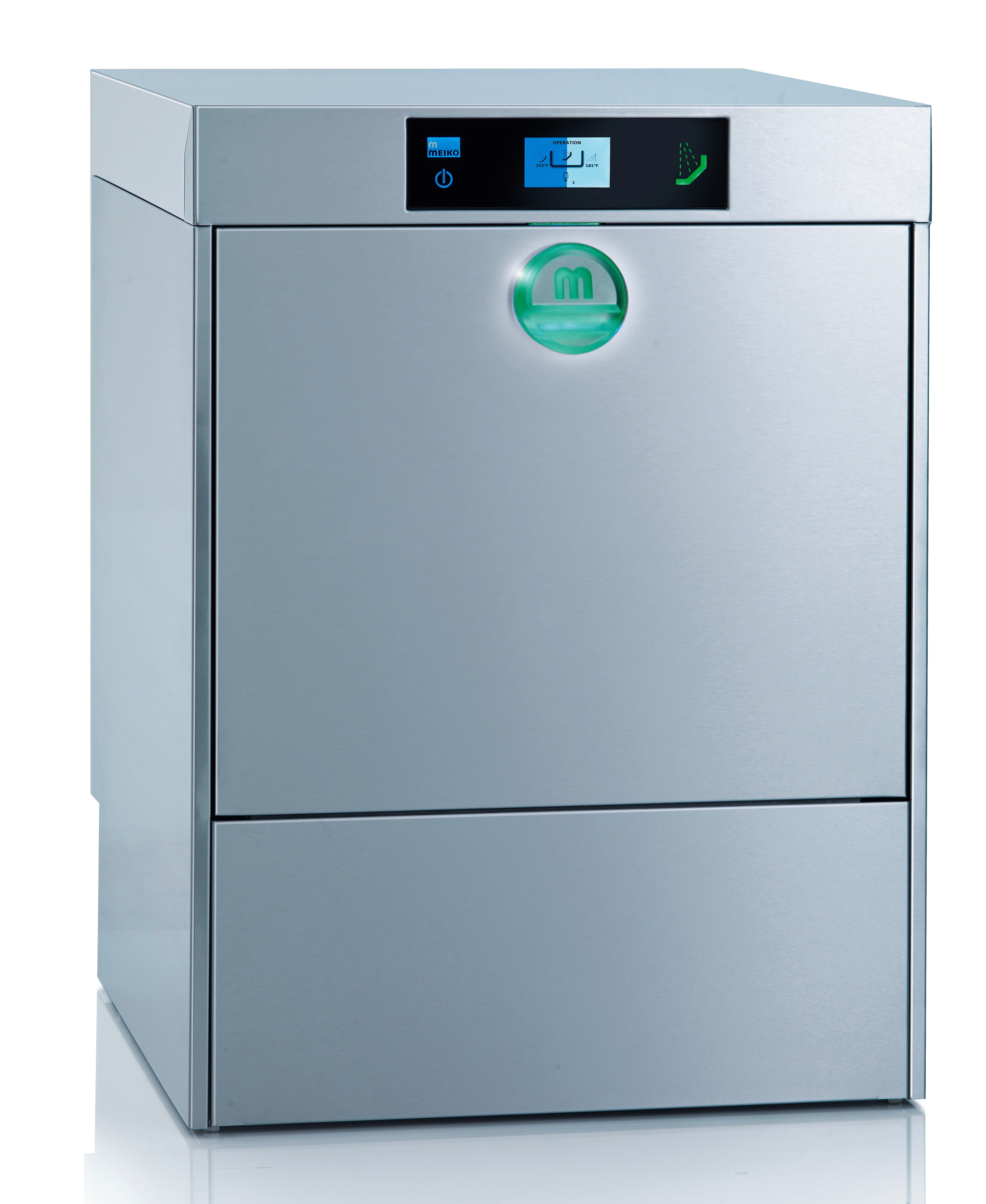Commentary
Dishwashers and food trucks: what you need to know
A dishwasher can be an efficient, labor-saving solution. Compared to brick-and-mortar restaurants, however, food trucks have greater challenges in terms of space and getting the necessary resources to operate the dishwashing machine.

June 17, 2019
 |
Mike Pavlovic is the senior systems planner with Meiko USA Inc., a provider of commercial warewashing equipment. He has more than 22 years in the foodservice industry. |
By Mike Pavlovic
When it comes to serving customers, most food truck operations do not have ware that is used, washed and reused. But there are still utensils, spatulas, pans and other cooking equipment that need to be cleaned on a regular basis — especially if you are preparing a range of menu items.
A dishwasher can be an efficient, labor-saving solution. Compared to brick-and-mortar restaurants, however, food trucks have greater challenges in terms of space and getting the necessary resources to operate the dishwashing machine.
But that doesn't mean you don't have options. Here are some considerations when thinking through your approach to warewashing and selecting a dishwashing machine.
Finding a dishwasher that works for your truck
Because of the space limitations on the truck, you are most certainly looking at an undercounter type machine. The problem with most undercounter type machines is that they're not designed to wash kitchen utensils or oversized pots and pans. The wash tubs are smaller, and the wash pressure is lower than you would find in a traditional back-of-house dish machine.
If you are reviewing undercounter options, you need to look for the ability to vary the wash pressure or find a machine with an NSF-rated pot-and-pan cycle. Otherwise, you're looking at very long wash periods.
You will also need to consider the position of your dishwasher. No dishwasher is going to work correctly if it's sitting at an angle. Finding a level place to park is often a challenge — it's usually space as available. In these situations, it is important to have a leveling system underneath the dishwasher so that once the truck is parked, you can adjust the machine to operate properly.
High temp versus low temp dish machines
 |
| Undercounter dishwashers are designed to take up less space. Photo courtesy of Meiko USA Inc. |
Trucks come with power and water restrictions, and your situation plays into the dishwasher you choose — specifically when it comes to a high temp or low temp machine.
Low temp machines use less power, more water and the ware will take much longer to dry. If you're looking to immediately put these items back into service, that may be an issue with a low temp option.
Conversely, with a high temp machine, you're going to need more energy but will likely use less water on average. Because of this, high temp dishwashers will also give you more washes if you are required to store the drain water in a tank — it's generally not allowed to drain food waste in a parking lot, etc.
Because it's washing at a higher temperature, these units will generally be a little more effective with first-time washing results; with high temperatures, grease tends to melt off rather than having to be physically rinsed off by bonding with the detergent. The drawback is you need more power with high temp dishwashers, which is more difficult in a mobile setting and may require a larger generator.
Detergents and other chemicals
If you are running a high temp machine, you will need detergent, as well as a rinse aid so that the water runs cleanly off the items. If you are using a low temp machine, you will need a sanitizing agent, in addition to the detergent and rinse aid. A chlorine solution is by far the most common sanitizing agent. There are others out there, like iodine, but they tend to be much more expensive by volume.
One important thing to remember is that by and large, chemical use is proportional to water use. With the high temp machines, in addition to using less water, you're also adding fewer chemicals to that water.
Since you're in a truck, be sure to secure these chemicals, as you don't want them to spill. Chemicals used commercially are more aggressive than those used at home, and the detergents and chlorine are corrosive. If they spill onto the floor, it is not only a safety hazard, but the fumes could be harmful as well. Additionally, over time, chlorine leaks that are not taken care of could eat through metal and damage the truck.
Alternative to an on-truck dishwasher
If the food truck doesn't have room for a dishwasher, what are the alternatives? You could have a second set of cookware that you swap out once one set becomes soiled. Then, you can cart all of that back to a facility once you are done with service.
If you don't own your own off-truck kitchen space, renting space at a commissary kitchen may be more cost-effective. These spaces would likely have a dedicated dishwashing area with a larger dishwashing machine. A larger machine would not only have higher capacity and throughput but would do a better job cleaning pots, pans and utensils.
Your goal: An efficient, compatible dishwasher
One final note — whether you are doing all the washing at a centralized facility or if it's on the truck, you should look heavily at Energy Star equipment. If you have to tank all of your water and waste on site, not only will an Energy Star rated unit reduce your bills in terms of consumables, but also give you more washes. Even if you're washing at a central location, the more efficient the machine is, the better the return on your investment.
Selecting equipment for a limited space like a food truck takes careful consideration. Thinking through your warewashing needs and how you will address them will help you choose the right dishwasher that enhances your operation's throughput and your guests' experience.
 ChatGPT
ChatGPT Grok
Grok Perplexity
Perplexity Claude
Claude






